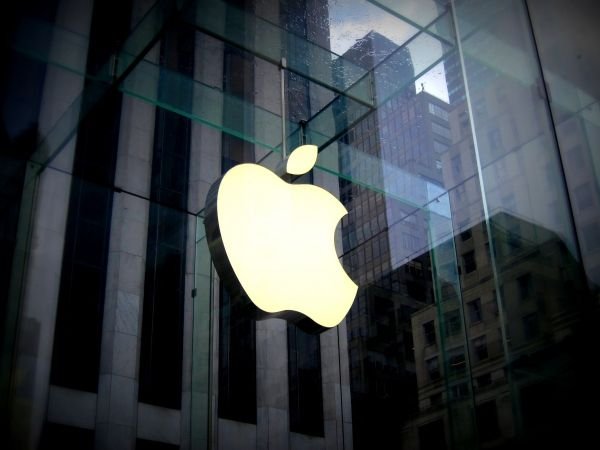
Over the past decade, the dominance of big tech companies—such as Google, Apple, Facebook (Meta), Amazon, and Microsoft—has grown to unprecedented levels. These firms have become deeply embedded in our daily lives, driving innovation, economic growth, and technological advancement. However, their enormous market power has also raised concerns about anti-competitive practices, leading to increased scrutiny from regulators worldwide.
In recent years, governments and regulatory bodies in the United States, the European Union, and other jurisdictions have initiated a series of antitrust actions against big tech. These actions aim to curb the power of these tech giants, promote fair competition, and protect consumer rights. However, a critical question remains: Will these antitrust actions make a real difference, or will they merely serve as symbolic gestures in the face of powerful corporations?
This article explores the context behind these antitrust actions, examines some of the major cases and legal strategies involved, and evaluates whether these efforts are likely to bring about meaningful change in the digital economy.
Understanding Antitrust Concerns with Big Tech
Antitrust laws, also known as competition laws, are designed to prevent monopolies and promote competition by prohibiting business practices that restrict trade or unfairly limit market access. The rise of big tech has triggered a growing debate over whether these companies have violated antitrust laws and abused their dominant market positions.
The primary concerns include:
- Market Dominance and Monopolistic Practices: Many of these companies have achieved near-monopoly status in their respective domains—Google in search, Facebook in social media, Amazon in online retail, and Apple in mobile ecosystems. Critics argue that these companies have used their market power to stifle competition, engage in predatory pricing, and create barriers to entry for new players.
- Platform Gatekeeping: Big tech companies often operate as gatekeepers, controlling access to essential digital services and platforms. For example, Apple and Google control the primary mobile operating systems and app stores, allowing them to impose stringent terms on developers and extract significant fees. This control can be used to favor their own products or services, restricting consumer choice and harming competition.
- Acquisitions and Elimination of Competition: Major tech companies have a long history of acquiring smaller competitors, potentially to eliminate threats and maintain market dominance. Facebook’s acquisitions of Instagram and WhatsApp, and Google’s purchase of YouTube and Waze, have been criticized as moves to neutralize competitive threats and consolidate market power.
- Data Dominance: Big tech companies have access to vast amounts of user data, which they leverage to enhance their services, target advertising, and develop new products. This data dominance creates significant barriers for new entrants and raises concerns about privacy, consumer choice, and the potential for anti-competitive behavior.
- Exclusionary and Self-Preferencing Practices: Some companies have been accused of using their platforms to favor their own products or services over those of competitors. For instance, Amazon has been criticized for using third-party seller data to develop competing products under its own brands. Google has faced allegations of prioritizing its own services in search results, potentially harming rival businesses.
Recent Antitrust Actions Against Big Tech
Governments and regulators around the world have taken various antitrust actions against big tech companies. These actions vary in scope and approach, reflecting different legal frameworks, regulatory priorities, and political contexts. Here are some of the most significant cases:
- United States: Antitrust Investigations and LawsuitsIn the United States, antitrust scrutiny of big tech has intensified, with multiple investigations and lawsuits filed by federal agencies, state attorneys general, and private entities.
- Google: In October 2020, the U.S. Department of Justice (DOJ) filed a landmark antitrust lawsuit against Google, accusing the company of unlawfully maintaining its monopoly in search and search advertising through exclusionary agreements and practices. The lawsuit alleges that Google has paid billions of dollars to device manufacturers, browsers, and carriers to ensure its search engine is the default choice, thereby stifling competition.
- Facebook (Meta): In December 2020, the Federal Trade Commission (FTC) and a coalition of state attorneys general filed a lawsuit against Facebook, seeking to break up the company by unwinding its acquisitions of Instagram and WhatsApp. The lawsuit alleges that Facebook pursued a systematic strategy to eliminate competition through acquisitions and exclusionary practices.
- Amazon and Apple: Both Amazon and Apple are under investigation by the FTC and the DOJ, respectively, for potential antitrust violations. Amazon faces scrutiny over its treatment of third-party sellers, alleged self-preferencing practices, and potential abuses of market power. Apple is being investigated for its App Store policies, which some developers argue are anti-competitive and exploitative.
- European Union: Aggressive Antitrust Actions and FinesThe European Union (EU) has been particularly aggressive in pursuing antitrust actions against big tech companies, leveraging its robust competition laws and regulatory powers.
- Google: The EU has fined Google over €8 billion ($9.5 billion) in three separate cases related to anti-competitive practices. In 2017, Google was fined €2.42 billion for abusing its market dominance by favoring its own comparison shopping service. In 2018, the company was fined €4.34 billion for using its Android operating system to strengthen its search engine dominance. In 2019, Google received a €1.49 billion fine for imposing restrictive contracts on third-party websites to prevent rival search engines from competing.
- Apple: In 2021, the European Commission opened antitrust investigations into Apple’s App Store practices following complaints from developers like Spotify and Epic Games. The EU is examining whether Apple’s rules on in-app payments and app distribution are anti-competitive.
- Amazon: The European Commission has initiated multiple investigations into Amazon’s treatment of third-party sellers and its use of marketplace data to favor its own retail products. In 2020, the EU filed formal antitrust charges against Amazon, accusing it of breaching competition laws.
- United Kingdom: The Emergence of a New Digital RegulatorThe UK has taken steps to enhance its regulatory framework following Brexit. The UK’s Competition and Markets Authority (CMA) established a new Digital Markets Unit (DMU) in 2021, aimed at enforcing a pro-competitive regime for digital platforms with strategic market status. The DMU will have the power to impose conduct requirements, block mergers, and fine companies up to 10% of their global turnover for violations.
- Facebook (Meta): The UK’s CMA ordered Facebook to sell Giphy, a GIF-sharing platform, which it had acquired in 2020. The CMA argued that the merger would reduce competition in the social media and digital advertising markets.
- Australia and Other Jurisdictions: A Global Push for RegulationOther countries, including Australia, Canada, India, and South Korea, have also taken steps to regulate big tech companies and address anti-competitive behavior. Australia’s News Media Bargaining Code, for instance, requires Google and Facebook to pay for news content, a move that has been closely watched by other governments worldwide.
Evaluating the Impact of Antitrust Actions
The current wave of antitrust actions against big tech raises several questions about their potential impact and effectiveness. Will these actions make a meaningful difference in promoting competition, protecting consumers, and curbing the power of tech giants? Here are some key factors to consider:
- Legal and Regulatory ChallengesAntitrust cases against big tech are complex and often involve lengthy legal battles. Companies like Google, Apple, and Facebook have vast resources and legal teams to defend themselves against allegations, and they often argue that their practices benefit consumers by providing free or low-cost services and fostering innovation.
Proving anti-competitive behavior in digital markets is also challenging due to the unique characteristics of these markets, such as network effects, data advantages, and multi-sided platforms. Traditional antitrust frameworks may not fully account for these complexities, leading to debates about the need for updated regulations and new approaches to digital competition.
- Potential for Structural RemediesOne of the most debated questions is whether antitrust actions should lead to structural remedies, such as breaking up big tech companies or forcing them to divest certain assets. Some lawmakers and regulators argue that breaking up big tech firms would restore competition and prevent further abuses of market power.
However, others caution that structural remedies could be disruptive and may not address the underlying issues. For example, breaking up Facebook by separating Instagram and WhatsApp might not prevent anti-competitive behavior if these platforms remain highly profitable and continue to dominate their respective markets.
- Behavioral Remedies and Market Conduct RulesIn addition to structural remedies, regulators may impose behavioral remedies or market conduct rules to ensure fair competition. These remedies could include prohibiting self-preferencing practices, mandating data portability and interoperability, or imposing limits on acquisitions of potential competitors.
While behavioral remedies may be less disruptive than breaking up companies, their effectiveness depends on enforcement and compliance. There is a risk that big tech companies could find ways to circumvent these rules or engage in new anti-competitive practices.
- Impact on Innovation and ConsumersA common argument against aggressive antitrust actions is that they could stifle innovation and harm consumers. Big tech companies often invest heavily in research and development, and their products and services are widely used and appreciated by consumers. Critics of antitrust actions argue that breaking up these companies or imposing restrictive regulations could reduce their ability to innovate and offer high-quality services.
However, proponents of antitrust actions contend that more competition would lead to greater innovation, lower prices, and more choices for consumers. They argue that the current dominance of big tech stifles innovation by preventing new entrants from gaining a foothold and reducing incentives for incumbents to improve their products and services.
- Global Coordination and ConsistencyGiven the global nature of digital markets, international coordination and consistency are crucial for effective antitrust regulation. While different jurisdictions have initiated actions against big tech, there are variations in legal standards, enforcement approaches, and regulatory priorities. This fragmentation could lead to conflicting rulings, regulatory arbitrage, and uneven competitive landscapes.
To make a meaningful difference, regulators must work together to develop consistent and coherent frameworks for digital competition. This could involve international agreements, cross-border cooperation, and the sharing of best practices and information.
Will Antitrust Actions Make a Difference?
The effectiveness of antitrust actions against big tech will depend on several factors, including the legal strategies employed, the willingness of regulators to impose meaningful remedies, and the level of international coordination. While there is no single answer to whether these actions will make a difference, a few potential outcomes are worth considering:
- Incremental Changes Over TimeEven if antitrust actions do not immediately lead to dramatic changes, they could still result in incremental improvements over time. Regulatory scrutiny, fines, and settlements may force big tech companies to adopt more transparent practices, avoid anti-competitive behavior, and increase their compliance with laws and regulations. These changes, while gradual, could create a fairer and more competitive digital marketplace.
- Catalysts for New Legislation and RegulationHigh-profile antitrust cases can serve as catalysts for new legislation and regulation. For example, the scrutiny of big tech in the U.S. and the EU has already prompted calls for updates to antitrust laws and the creation of new regulatory frameworks for digital markets. Such legislative changes could provide clearer rules, stronger enforcement mechanisms, and more robust protections for consumers and competitors.
- Potential Deterrence EffectAntitrust actions, even if they do not result in significant structural changes, can have a deterrence effect. The threat of legal action, fines, and reputational damage may prompt big tech companies to change their behavior and adopt more pro-competitive practices to avoid further regulatory scrutiny.
- Uncertain Impact on Market StructureWhile antitrust actions aim to promote competition and prevent monopolistic practices, their impact on market structure is uncertain. Digital markets have unique characteristics, such as network effects and economies of scale, which may favor large players. Breaking up big tech companies or imposing new rules may not necessarily result in more competition if new entrants cannot achieve the same scale or if consumers prefer the integrated services offered by incumbents.
Conclusion
Antitrust actions against big tech represent a critical effort to address growing concerns about market power, competition, and consumer protection in the digital economy. While the outcome of these actions is uncertain, they reflect a growing recognition that the dominance of tech giants must be carefully monitored and regulated to ensure fair competition and innovation.
Whether these actions will make a significant difference depends on a variety of factors, including the legal strategies employed, the remedies imposed, the level of international coordination, and the willingness of regulators to challenge powerful corporate interests. At the very least, these antitrust actions signal a shift in the regulatory landscape, with greater scrutiny and accountability for big tech companies.
Ultimately, the goal is to create a digital economy that is open, fair, and competitive, where innovation thrives, consumer rights are protected, and market power is balanced. Achieving this goal will require a combination of legal action, regulatory reform, and international cooperation, as well as ongoing vigilance and adaptation to the evolving dynamics of the digital age.







